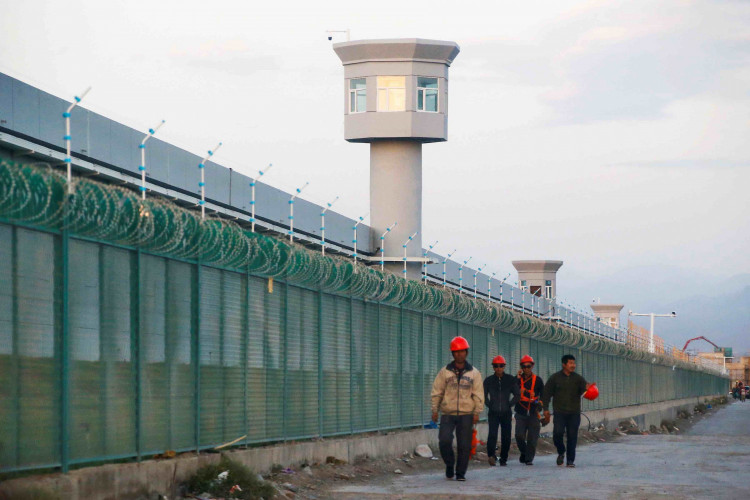In a resolution passed Friday, the European Parliament condemned alleged forced labor in Chinese internment camps and criticized "well-known European brands" for benefiting from the practice.
"Parliament strongly condemns the Chinese government-led system of forced labor - in particular the exploitation of...Muslim minority groups - in factories within and outside internment camps in the Xinjiang Uyghur Autonomous Region," the assembly said in a statement on Thursday.
More than one million members of the Uyghur ethnic minority are currently incarcerated in a series of internment camps in western China, according to the US State Department, although China has refuted allegations of forced labor and - until recently - denied the existence of these camps altogether.
Chinese authorities now claim that these voluntary "vocational training centers" help minority groups learn Mandarin and simple tradecraft in a bid to counteract religious extremism in the region.
But this explanation is contradicted by witness reports detailing systemic human rights violations, which led the US to ban cotton imports from Xinjiang earlier this year.
However, the use of forced labor is likely more widespread and encompasses regions outside Xinjiang according to the EU Parliament, which condemned the transfer of Uyghur forced laborers to other areas of China.
Parliamentarians also criticized "the well-known European brands and companies that have been benefiting from forced Chinese labor."
"We must not be morally complicit with the appalling human rights abuses by buying goods produced by forced labor in China," said European Parliament Member Miriam Lexmann during the debate.
They called on the Chinese government to end the practice of mass incarceration of ethnic minorities and demanded "the immediate release of those detained," in a statement.
To be sure, the resolution is more symbolic than effective.
As members of the European Parliament gathered on Thursday to vote, Chinese and EU trade envoys were also meeting to hammer out the landmark Investment Agreement seven years in the making.
The willingness of some European governments to continue discussions with China chafed at supporters of the resolution - it's "hard to believe" said parliamentarian Reinhard Butikofer in a Twitter post on Thursday.
"Progress has been achieved in a number of areas," a European Commission spokesperson said last week regarding the agreement with China. "There are still some important outstanding matters and talks are continuing this week."





